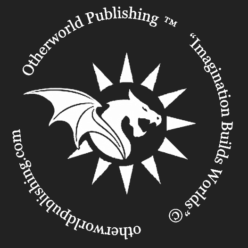Finding a publisher that’s the right fit for you is trickier than it has ever been. The truth is that publishers in the mainstream are getting more difficult to approach and secure a contract with.
The small to medium size publishers only publish a handful of books each year and the big publishing houses and presses are screening out would be published authors by requiring agented submissions of the authors work.
The publishing world is changing constantly, and writers are wise to take the time to choose carefully which publishers to approach. If you are looking for a contract with a traditional publisher, beware of advertisements and solicitations offering to publish your book for a fee.
Traditional publishers do not require writers to pay to produce their books. If you want to self-publish, either in print or electronic form, do your homework about suppliers, as their services, fees, and the professionalism of their products can vary significantly.
A visit to a good independent bookstore with a large selection of Canadian titles will help you select appropriate traditional publishers to approach. Their current titles will tell you a lot about their publishing programs.
The Writers’ Union maintains the Writers’ Guide to Canadian Publishers, a searchable listing of Canadian publishers who accept unsolicited manuscripts, including the kind of work they are currently considering.
Take time in the preparation of your query (or cover) letter or email: Remember that it will be the first sample of your work that a publisher will see.
Publish Your Own Book! Learning how to self-publish a book and getting your ideas into the world is easier than it’s ever been. There is a wealth of knowledge available online, shared by authors who have developed proven techniques for selling more books.
There are also a number of ways new authors can access professional services without breaking the bank. By self-publishing, we generally mean creating and selling a book online, outside the traditional publishing industry — in which publishing companies pay authors advances and a royalty, working with them to edit, design, and distribute the book. Today, anybody with an internet connection can write an ebook and make it available to hundreds of millions of readers — pretty much for free.
The new challenge is to make these books bestsellers without the marketing might of a HarperCollins behind them. Many writers have risen to this challenge, however, with the help of modern methods and social media. But what defines true success in publishing?
If it’s the ability for authors to support themselves as full-time writers, you might be surprised to learn that this is often easier without a publisher — There are many benefits that draw authors to self publishing. Without having to go through the traditional gatekeepers of the publishing world, you will find:
Creative freedom. You have full control over the content, the title, the length, and the book cover design. You have the option to collaborate with editors and designers — but in the end, the only editorial approval you’ll need is your own!
A guarantee of publishing. If you need to release your book by a certain date, pretty much the only way to guarantee it is to publish it yourself. After all, you’re not beholden to the schedules of a gargantuan press.
A greater portion of royalties. By essentially cutting out the middleman, the self-published author will retain all the proceeds (minus the retailer’s cut).
100% ownership of rights. As part of their book deals, traditional publishers sometimes ask for exclusive rights to reprint, film adaptations, and merchandising. The independent publishing route at least ensures you remain in full control.
